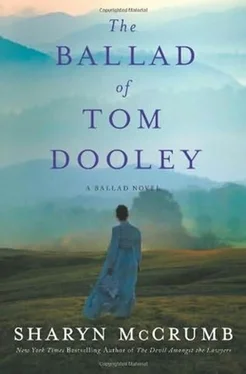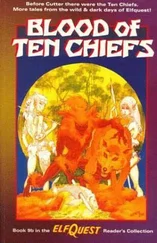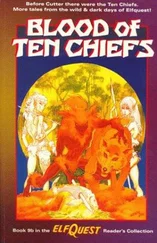Instead of pushing on to Richmond and to victory, he pulled his troops back to the James River, planning to load them back on the ships they came in and sail away to safety. We should have given him a parade, but instead we chased him on his way, and at the last piece of high ground before the river, he decided to stand and make a fight of it-at a place called Malvern Hill.
He lined up his artillery on the top of that hill, and he stationed his infantry forces at the ready to engage us in the intervals between bursts of cannon fire.
Our orders were to take that hill.
If I had occasion to meet James Melton, we would not slap each other on the back and reminisce about Malvern Hill. It had none of the golden glory that Shakespeare attributed to Agincourt. It had all the filth and squalor of a hog-killing.
Our orders were to charge that hill and take out McClellan’s cannons. To that end, soldiers would charge across the open field, trying to ascend the slope, and a whistling shell would spiral down and blow them to pieces as they ran.
If I am remembered at all for my part in that sorry spectacle, it is for a jest I made in hopes of boosting the morale of my poor beleaguered men. Once when we were pinned down in a hail of bullets, a startled rabbit jumped out of the nearby underbrush and streaked across the field. Seeing this, I shouted, “Run, you sorry rabbit! If I wasn’t the governor of North Carolina, I’d run, too!”
Well, I was two months shy of getting elected, but at least I stood my ground at Malvern Hill, and when the time came to cast the ballots, the troops remembered me favorably, so that I won the election by a margin of two to one.
In September I headed back to North Carolina on furlough, for I would take the oath of office before a judge in mid-September. The 26th North Carolina fought on without me, at Antietam Creek in western Maryland, where they say the very air turned red from all the blood shed in that terrible battle. By the end of the fighting, the dead lay stacked like cordwood, a dozen feet deep in the roadbed. General Lee lost a quarter of his army in that one battle, and with it all hope of foreign alliances that might have equipped us to withstand the onslaught of the Union forces.
I was gone from the army for good before Antietam, ensconced in the Governor’s Palace in Raleigh, where the battles were fought with forms, and requisitions, and letters couched in diplomatic insolence.
But James Melton had no such escape. He would have staggered on in rags and tattered boots, living on hardtack and homesickness, until the bitter end-which came for him in a Union prison camp many miles from home.
No, I would not reminisce about the War with this veteran of the 26th North Carolina. There was nothing either of us wanted to remember.
March 1866
March finally wore out, and the fields got green again, but all that meant to me was that I’d be working in the fields as well as doing all the household chores. It made it easier to walk the mile or so to a neighbor’s place to visit a spell, when I wasn’t too tired of an evening to manage it. My fever never did come back, though, and that rash I’d had when I came here had faded away altogether, so I began to think that Dr. Carter’s bluestone cure had done its work. He said I had to keep going to see him, though. Some ailments, he said, were like flies in winter-just because you didn’t see any around didn’t mean they were gone for good.
“I don’t think you are well, Pauline,” he told me, when he gave me my latest dose of medicine. “And I think you might still be able to pass this disease to someone else if you were intimate with him.”
“Oh, I’ll be careful,” I told him. I meant I’d take care in deciding who it was I wanted to infect. Sometimes I felt like that angel with the flaming sword that drove Adam and Eve out of Eden: I had a God-sent weapon that would bring death to ever who I chose.
***
“We have not seen so much of Tom Dula lately,” I said to Ann one afternoon. I had spent all day planting corn in the field with James Melton, and when I got in, stiff-backed and bone-weary, Ann had told me to wash her bed sheets before I started on supper. I couldn’t refuse for fear of losing my situation, but I figured I owed her a little pain in return, so while I was making biscuits to go with the stew, I made that remark about Tom, as innocent I could make it sound, knowing it would be salt in her wound, and glad of it.
Ann stiffened for a moment, but then she made her voice light, and she said, “Well, it’s planting time. Everybody around here has plenty to do right now.”
I snickered. “Reckon he’s planting something, all right. Over at Wilson Foster’s.”
Ann slapped me hard, leaving a white handprint on my cheek from the flour. I just smiled at her and went back to kneading the biscuit dough. She wiped her hands on her skirt, but she just kept standing there. Her nose got red, and I saw one solitary tear leak out of the corner of her eye and slide down her cheek.
Finally she said, “He don’t care nothing about Laura Foster.”
“Well, in case his mama ever dies, I reckon he’ll need somebody to look after him. He might be giving some thought to that. Besides, a marriage seldom comes about on account of what a man wants. If I was you, Ann, I’d be studying about what Laura wants.”
Ann picked up a ball of dough and began to roll it around in her hand. Then she squashed it flat on the flour cloth and pressed down hard with her palm. “It ain’t like he has anything to offer anybody,” she said.
“I couldn’t say,” I said, taking care to keep my voice light and indifferent. “But her mother is dead, leaving a passel of children and Wilson Foster himself needing to be looked after. No love lost between Laura and her father, from what I hear. Now if it was me, I reckon I’d take just about any opportunity to get shut of all those young’uns and an ornery father who used me as a house servant. Did you not find yourself in that self-same situation when you were fifteen?”
She gave me a stricken look then, and I knew I had hit the mark. Ann had married James Melton to get away from a fractious parent and a home life of toil. She must have known as well as I did that Tom Dula was a deal more appealing to a young girl than old sobersides Melton had ever been. Maybe Laura Foster had precious little to gain by marrying Tom Dula, but what did she have to lose?
“It won’t change anything,” said Ann, pounding another biscuit into the floured cloth. “Tom would never.”
I took the dough away from her and rolled it back into a ball. “I expect you’re right,” I said, keeping my eyes on my work. “Just because he’d have a place of his own, and somebody making him dinner, and waiting to warm his bed, there’s no call to think he wouldn’t want to hang around here, on the off chance that your husband will drop off to sleep.”
Ann edged me away from the table. “Go see her, Pauline. Tonight. After supper. Just pass the time with her this evening and see if you can tell what’s on her mind. She may be mixed up with somebody besides Tom.”
“Go see her?” I laughed. Ann never thought about anything but what she wanted. “Why, she lives all the way over in German’s Hill. Even if I was to stop there only long enough to say how-do and drink a cup of water, I doubt if I could make it back here by sun-up.”
Ann stamped her foot. “But I want to know what she’s up to! I can’t rest until I do. Why don’t you go tomorrow after midday and walk over there? I’ll tell James to let you.”
I thought it over. The prospect of a walk over to see my other Foster cousins was a pleasant thought for me, if the day was fine, and if I had to indulge in tale-bearing at Ann’s bidding, I reckoned it would be worth it. Besides, I was curious to see for myself how the land lay between Tom Dula and Laura Foster. I might be stingy with the truth when I got back to Ann, but I’d like to know for my own satisfaction. No use to make it easy on her, though.
Читать дальше












